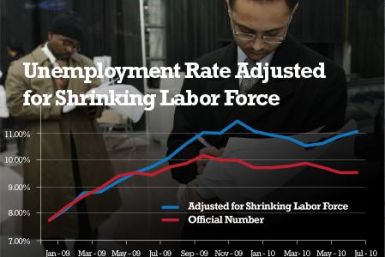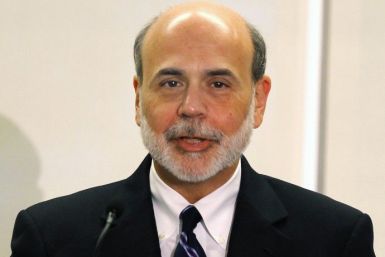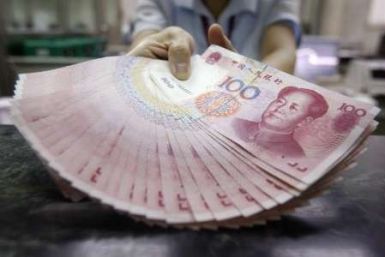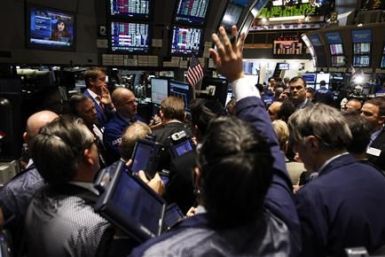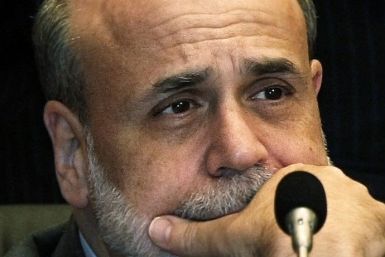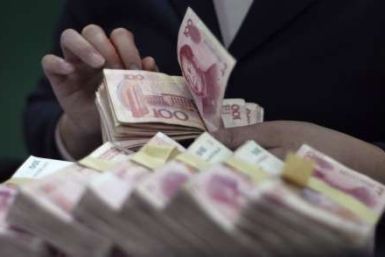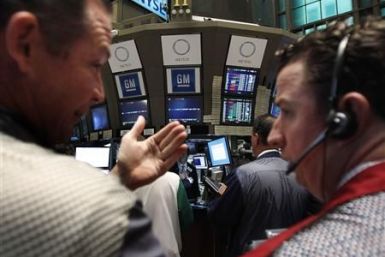Japan's economic recovery showed some positive signs as inflation increased in October for the first time in almost 24 months.
The fall in initial jobless claims in the U.S. to the lowest level since July 2008 is not a right pointer to a possible labor market recovery, according to an analyst, who says the true test for the economy is the creation of anything above 200,000 payroll jobs in a month.
Pessimistic outlook about unemployment from the U.S. Federal Reserve overshadowed reports stating the economy grew faster in the third quarter. The Fed expects unemployment to remain high over the next couple of years, hovering around 8.9 percent to 9.1 percent next year. It had previously forecast unemployment rate between 8.3 percent and 8.7 percent.
Sovereign debt crises in peripheral Europe threaten to bring down the overall euro zone economy because European banks are heavily expose those debt.
Minutes of the November 2-3 Federal Open Market Committee meeting.
Existing home sales in the U.S. dropped in October after two months of strong increases, the National Association of Realtors said in a statement.
The U.S. economy grew a little more than expected in the third quarter, helped by a sharp drop in imports and a rise in private inventory investment, according to the second estimate released by the U.S. Bureau of Economic Analysis.
A BIS study found the market judges risks of uncontrolled inflation to be relatively low for the U.S and euro zone, despite the expansion of their central banks' sheets and soaring gold prices.
The U.S. economic growth is expected to remain sluggish over the next couple of years, as inflation heads towards zero and unemployment remains high. Official U.S. GDP figures are due on Tuesday, along with sales information of existing homes.
Growth of the U.S economy is expected to remain sluggish next year as the nation suffers from high employment, high public debt, and rising commodity prices, says a report.
The Chinese government has announced a slew of measures to combat rising commodity prices, including boosting agricultural production and stabilizing supply of products and fertilizers.
In an eventful week, that passed through uncertainty about Ireland's response to a bailout offer, an unexpectedly higher Chinese inflation number and its policy response and largely mixed US data, investors remained cautious about the changing 'risk-friendliness' of commodities. In a mixed precious metals segment, silver rose 5 percent in the week and palladium was up by 4.4 pct while gold fell 1.1 percent and platinum dropped by 0.9 percent from previous Friday.
U.S. stocks finish a volatile week with modest gains on Friday, finishing flat for the week as a whole. In the absence of major economic data in the U.S., investors focused on moves by China to rein in their inflation, while Ireland continues to negotiate a bailout arrangement from the European Union and International Monetary Fund (IMF).
Full-text of speech by Fed Chairman Ben Bernanke at the sixth European Central Bank Central Banking Conference, in Frankfurt, Germany , on Nov. 19, 2010.
A surge in food prices propelled Chinese consumer prices to a 25-month high in October, despite the government's efforts to control inflation. Food prices in the world’s second largest economy went up by 10.1 percent in October year-on-year.
Futures on the S&P 500 lost 3.70 points to 1,194.00, futures on the Dow Jones Industrial Average are down 31.00 points to 11,145.00 and Nasdaq100 futures are down 5.00 points to 2,129.25.
Regional manufacturing activity in Philadelphia improved during November, according to the Philadelphia Fed Manufacturing Index, which touched its highest reading since Dec. 2009.
The University of Michigan forecasts the U.S. economic recovery to be sluggish in the near term due to the weak jobs market, deleveraging, belt-tightening within state and local governments, and the still-felt impact of the housing collapse.
Stocks surged, buoyed by the successful huge initial public offering of General Motors (NYSE: GM), reports that the Republic of Ireland will receive a bailout to solve its troubled banking system and better-than-expected manufacturing activity data.
In the following interview of IBTimes with Jonathan Rose, President and CEO of Capital Gold Group, he talks about the recent cool down of the gold price, the impact of the non-results of the G-20 summit, the different mentality of investors in the U.S. and Britain regarding gold, and says that the Federal Reserve and gold ETFs should be properly audited.
Boston Federal Reserve's Chairman Eric Rosengren defended the Fed's second round of quantitative easing, stating that it was necessary to avoid deflation and help unemployment. The fact that the U.S. Treasury yields have risen since the Federal Reserve announced a second round of quantitative easing does not mean that the QE2 is failing, Capital Economics said in a note.
The Federal Reserve on Wednesday announced guidelines for evaluating whether or not banks will be allowed to take actions that could result in a diminished capital base in 2011.












